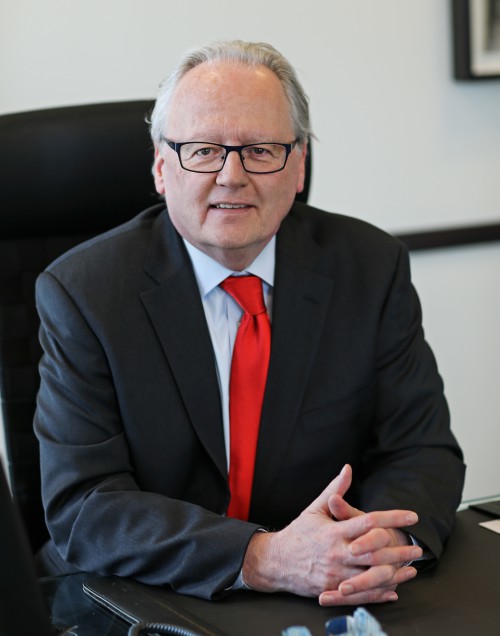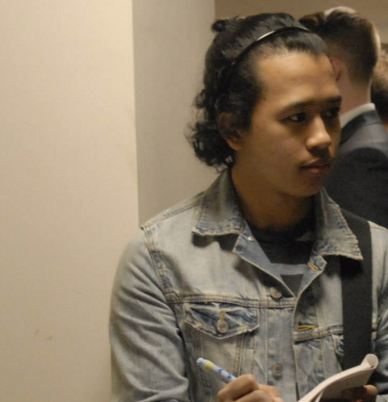In an exclusive interview with The Suffolk Journal following two town hall meetings with faculty, Suffolk University President James McCarthy pushed plans to streamline the university physically and bolster its educational efficiency.
The main message McCarthy stressed is driving to be a more effective school not just in the ways students are taught, but also by the better use of the university’s physical space. Further, he wants the school to provide more public service.
“There are a lot of changes going on [at] Suffolk and as we’re planning the budget for next year, we’re going to be making a lot of decisions that will have a substantial impact on the university,” said McCarthy. “We are moving quickly so I wanted to make sure everybody was aware of that.”
The president wants the university to achieve savings – especially because every dollar saved means a reduction in tuition, he said. He does express that being in the middle of a thriving city like Boston is a challenge, but the cost of having a campus on Beacon Hill and the addition of the 20 Somerset building will allow the university to create a more efficient space for its classrooms and students.
“Imagine if every classroom seat from Fenton, Archer and Donahue will be in 20 Somerset. There will be an incredibly efficient use of space there because it is a much more efficient building,” said McCarthy. “Our goal is to have less space. Less space, but better space. More efficient space.”

One of the issues discussed in McCarthy’s interview was the university’s debt. Suffolk is in around $300 million of debt from real estate and other expenses. McCarthy stated that although Suffolk does have debt, people often ignore the fact that Suffolk does have more than twice as many assets than debt.
McCarthy discussed his plans for the next few years, calling them “action steps.” These steps include the benefits of hybrid courses, to developing a more integrated science program, and even different advertising opportunities for the university.
Although there are no current plans to create more hybrid courses, the president said that some research has been done to gauge how effective the courses are as opposed to the traditional classroom environment. The research shows that there was no tremendous difference between the effectiveness of the two class types, according to McCarthy.
The president mentioned that there would be a Life Sciences Advisory Committee at Suffolk in an effort to improve the sciences with the addition of 20 Somerset. A group of hospital chief financial officers, researchers, and other people involved in the field of science would be involved with Mary Pat Wohlford, associate vice provost and director of research and sponsored projects of the science committee, to construct ideas to increase internship opportunities, get mentors, sources of aid, jobs in life sciences, modify current curriculum and develop new programs to meet the needs of the job market.
Suffolk has been praised for having included sciences in most majors and this has proven to be beneficial especially for students in the business and law school, McCarthy said. McCarthy also said that a bachelor’s degree in the sciences is one of the most important requirements in the job market.
During one of the faculty town hall meetings, McCarthy informed the audience that Suffolk has formed a partnership with Devito/Verdi to create edgy advertisements and to recreate the Suffolk brand, as previously reported by The Suffolk Journal. McCarthy wants to broaden Suffolk’s reach and brand awareness, to put the university on more consideration lists and increase the school’s yield rate. McCarthy also mentioned that the university can use its own website and even paid social media like Twitter for advertisements.
The university has also been working with Scannell & Kurtz Inc. for admission tagging purposes, he said. The group is set to analyze data to gauge which prospective students are more likely to enroll. McCarthy said this is important for the school so the administration can predict who to give financial aid and how to focus the university’s resources.
During one of the faculty town hall meetings, McCarthy also mentioned the initiative for Massive Open Online Courses (MOOC). The president believes MOOCs should be developed by all kinds of universities and should distribute content broadly. There is a value in online content and it is often tailored to how the audience learns, he said.
McCarthy said he is optimistic the university will improve with his plan and will make Suffolk a great place to educate the youth.













